The University of the Philippines Law Center (UPLC) Workers and Employees Program (WEP) held three sets of trainings for workers in 2025
The University of the Philippines Law Center (UPLC) Workers and Employees Program (WEP) held three sets of trainings for workers in 2025: the Labor and Gender Training with the UPLC Gender Law and Policy Program on 6-7 March 2025, the DOLE-UP Paralegal Training Program on Labor Rights and Remedies in March, June, and August 2025, and the Bigkis WEP 2025 Training Series on Labor Relations for private sector workers in July and on 20 September 2025.
UPLC WEP & GLPP Hold Labor and Gender Training Ahead of International Women’s Day
81 More Union Representatives Complete DOLE-UP Paralegal Training
After 36 union officers and members from Northern and Central Luzon completed the training in March 2025, 81 more union officers and members from Southern Luzon, Central Visayas, Mindanao, and Metro Manila finished the DOLE-UP Paralegal Training Program on Labor Rights and Remedies. The training was jointly conducted by UPLC WEP and the Bureau of Labor Relations (BLR) of the Department of Labor and Employment (DOLE) on 16-22 June 2025 and 4-10 August 2025 at Sequoia Hotel, Timog Avenue corner Mother Ignacia Avenue, Quezon City.
The June 2025 round had 42 participants from Regions IV-B, V, and VIII, while the August 2025 round covered 39 participants from Regions IX, X, XII, Caraga, and Metro Manila. Including the 111 finishers from the April 2024, July 2024, and March 2025 rounds, a total of 192 union representatives have completed the paralegal training program.
Pursuant to the 23 August 2023 Memorandum of Agreement between the DOLE, UP College of Law, and UP Law Center, the training was a gender-sensitive paralegal program for workers, capacitating them with knowledge of various legal remedies available to them, as well as case build-up skills so that they can help provide relevant information and evidence to establish an airtight case against perpetrators of violence committed against their ranks.
The same lecturers from the March 2025 round returned for the June and August 2025 rounds.
Module I: Fundamental Principles and Basic Rights of Workers
Fundamental Principles: Attorney Arnold F. De Vera, WEP Program Director and Attorney Jasper Frederick C. Briones, WEP Junior Legal Associate
Rights and Obligations of Workers: Attorney Briones and Attorney de Vera
Overview of Legal Remedies: Attorney Emir-Deogene V. Mendoza, WEP Senior Legal Associate
Module II: Gender Sensitivity in the Workplace
Examining Gender and Society: Assistant Professor Maritess D. Cruz, Department of Women and Development Studies, College of Social Work and Community Development, University of the Philippines Diliman
Use of Gender-Fair Language for Inclusivity: Assistant Professor Irish Joy G. Deocampo, Department of English and Comparative Literature, College of Arts and Letters, University of the Philippines Diliman
Anti-Sexual Harassment and Safe Spaces in the Workplace: Attorney Louise Aubrey P. Mejia, Legal Associate, Gender Law and Policy Program, UP College of Law
Gender-based Collective Bargaining: Associate Professor E. (Leo) D. Battad, Program Director, Gender Law and Policy Program, UP College of Law and WEP Faculty Member
Module III: Legal System, Procedures, and Remedies
Jurisdiction and Remedies in Philippine Labor Law and Jurisprudence: Attorney Juan Carlo Tejano, Chief of Staff of Representative Jose Manuel Tadeo “Chel” I. Diokno of Akbayan Partylist
Omnibus Guidelines on Freedom of Association and Civil Liberties: Attorney Arnold F. De Vera, WEP Program Director
Jurisdiction and Remedies in Civil Law and Jurisprudence: Human Relations: Attorney Glenda T. Litong, Law Reform Specialist V, Institute of Human Rights, UPLC
Violation of Rights as Crimes: Attorney Dan P. Calica, Lecturer, UP College of Law
Arrest, Search, Seizure, and Detention: Attorney Niel Anthony S. Borja, Lecturer, UP College of Law
Special Proceedings: Writs of Habeas Corpus, Amparo, and Habeas Data: Attorney Marwil N. Llasos, Chief of Staff to the Dean, UP College of Law and WEP Faculty Member, and Attorney Emir-Deogene V. Mendoza, WEP Senior Legal Associate
Republic Act No. 11479, Anti-Terrorism Act of 2020 and Rules on the Anti-Terrorism Act of 2020 and Related Laws: Attorney Emir-Deogene V. Mendoza, WEP Senior Legal Associate
Access to Legal Assistance: Attorney Marwil N. Llasos, Chief of Staff to the Dean, UP College of Law and WEP Faculty Member, and Attorney Nathaniel N. Diaz, WEP Senior Legal Associate
Module IV: Evidence, Investigation and Interview, and Documentation
Introduction to Evidence: Attorney Briones
Conducting Investigation and Interview: Attorney Diaz
Documentation of Cases: Report Writing and Affidavit Making: Attorney Diaz
In between the lectures, participants had time to meet with Mediators-Arbiters of the BLR DOLE and WEP lawyers to discuss their case studies based on incidents of freedom of association violations. On the last day of each round, participants explained what rights were violated in the case study assigned to them, what remedies were available, what evidence they needed and where they could obtain them. Mediator-Arbiters from the BLR and WEP members then commented on the participants’ analysis.
JUNE 2025
AUGUST 2025
Bigkis Conducted as Second WEP Training Series on Labor Relations
WEP held, on the Saturdays of July 2025 and 20 September 2025, an online training series on labor relations in the private sector with the theme Bigkis. This followed the first WEP training series on the same topic conducted in 2023.
A total of 117 representatives from unions, federations, other labor non-government organizations, workers, and students took part.
Bigkis’ objective is to inform private sector workers of their constitutional right to organize, collectively bargain, and engage in peaceful concerted activities, including the right to strike in accordance with law, their rights as union members, the responsibilities of union officers, the role of the union in the workplace, affiliation and disaffiliation, unfair labor practices, remedies, and addressing misconceptions on unionism. The goal is to encourage private sector workers to exercise their labor relations rights.
The topics were discussed by the following lecturers:
5 July 2025 – Why Join a Labor Organization, lectured by Director Attorney Arturo Alfonso J. Herbosa, Bureau of Labor Relations (BLR), Department of Labor and Employment (DOLE)
12 July 2025 – Labor Organization Formation and Operations, lectured by OIC-Division Chief Atty. Athena M. Villagonzalo, BLR DOLE
19 July 2025 – How to Be Recognized for Collective Bargaining and Filing Complaints with BLR, lectured by Mediator Arbiter Attorney Ramon A. Saura III, BLR DOLE
26 July 2025 – Unfair Labor Practices, lectured by Commissioner Hernan Nicdao, National Labor Relations Commission, DOLE
20 September 2025 – Strikes and Lockouts, lectured by Conciliator-Mediator Ericson L. Igual, Chief, Conciliation and Mediation Division, National Conciliation and Mediation Board (NCMB), DOLE
The last session, the hybrid collective bargaining lecture with a role playing exercise, was postponed to a later date. WEP will inform registered participants of the new date via email.


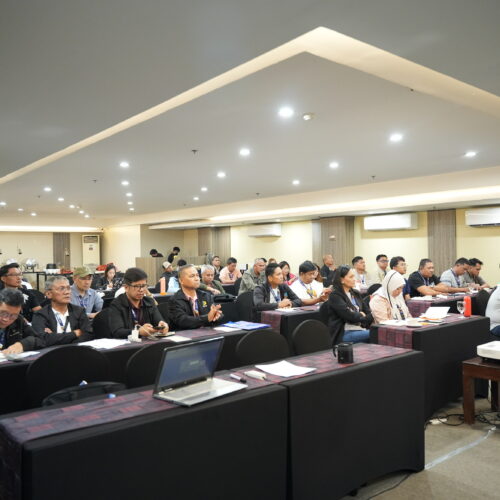
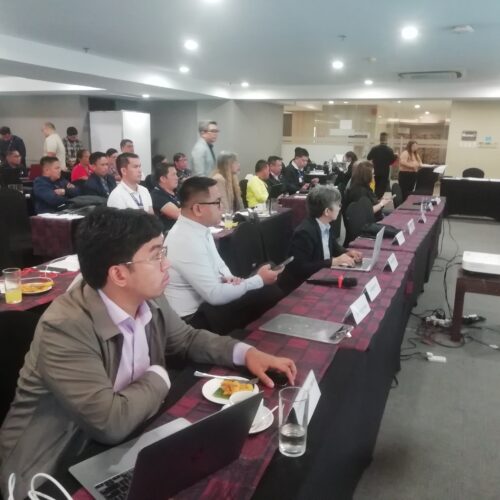
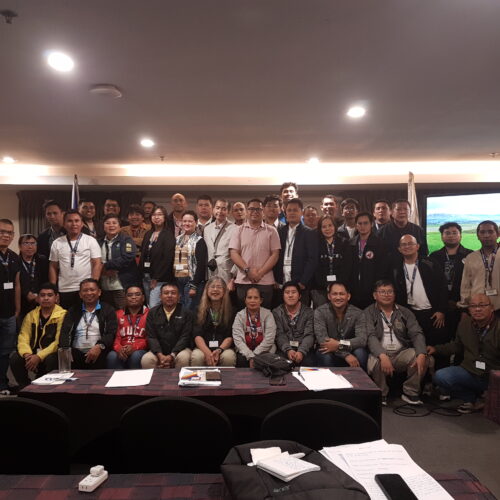
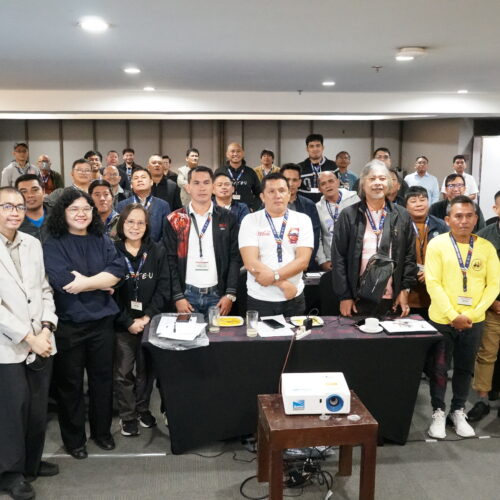
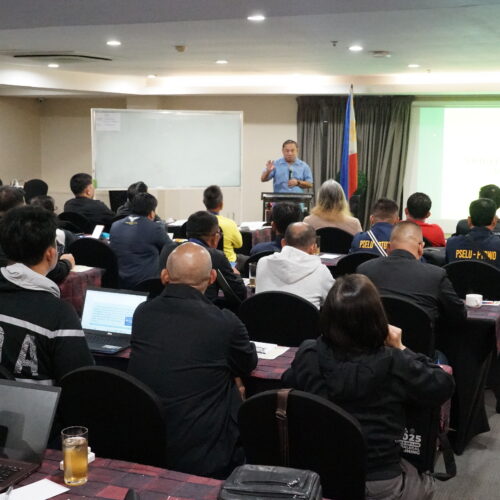






































































































 on the upper right corner to select a video.
on the upper right corner to select a video.